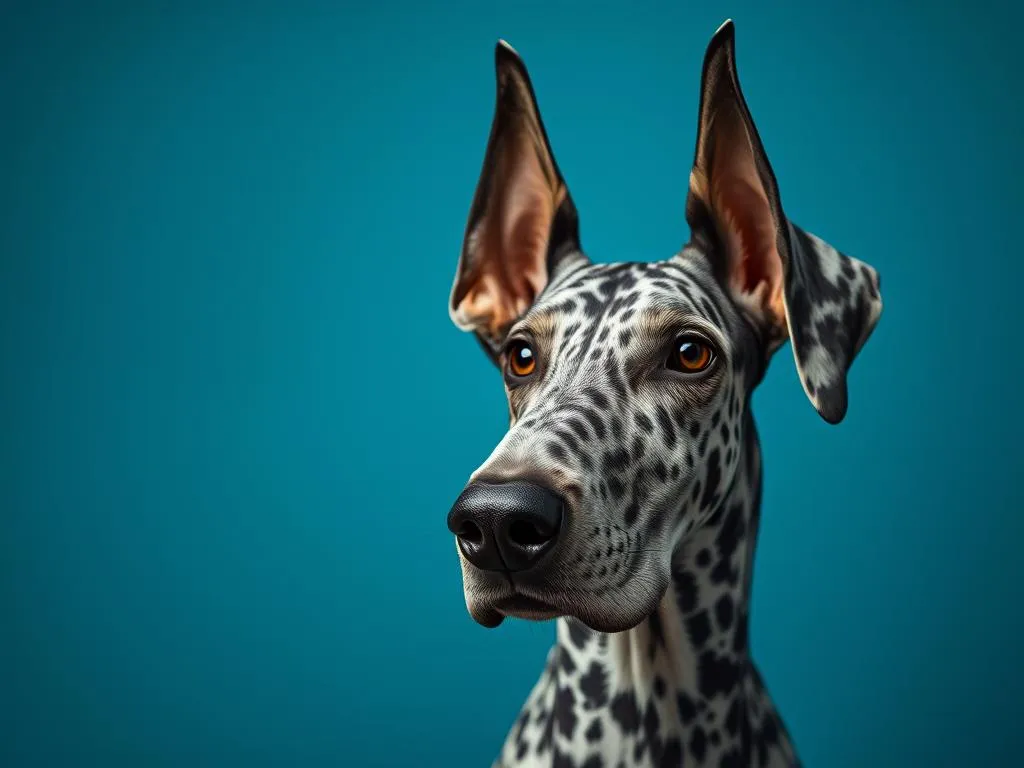
Introduction
Dog intelligence varies significantly across different breeds, and understanding these differences can be crucial for potential pet owners. Among the vast array of dog breeds, Great Danes stand out not only for their imposing size but also for their unique characteristics. When discussing the intelligence of dog breeds, one might wonder: how smart are Great Danes? This article delves into the intelligence of Great Danes, exploring their cognitive abilities, temperament, and how they compare to other breeds.
Understanding Dog Intelligence
What is Dog Intelligence?
Dog intelligence can be defined in various ways, but it generally falls into three categories: adaptive, working, and instinctive intelligence. Adaptive intelligence refers to a dog’s ability to solve problems and learn from their experiences. Working intelligence, on the other hand, includes the capacity to follow commands and perform tasks as directed. Lastly, instinctive intelligence pertains to the breed’s innate abilities, such as herding or guarding.
Understanding these different types of intelligence can help potential owners make informed decisions about which breed might suit their lifestyle and needs.
Measuring Dog Intelligence
Evaluating a dog’s intelligence is not a straightforward task. Several methods exist to assess canine IQ, including standardized tests designed to measure a dog’s problem-solving skills and ability to learn commands. One renowned source of dog intelligence rankings is Stanley Coren, a canine psychologist who categorized breeds based on their working and obedience intelligence. This ranking system provides insights into how well different breeds can learn commands and tasks, giving potential owners a framework for understanding their chosen breed’s intelligence.
The Great Dane Breed Overview
History and Origin
Great Danes have a fascinating history that dates back several centuries. Originally bred in Germany for hunting large game, these dogs were often used for boar hunting. Their strong build and impressive stature made them formidable hunters. Over time, they evolved into gentle giants known for their friendly disposition, making them suitable as family pets.
Physical Characteristics
Great Danes are known for their remarkable size, with males typically standing between 30 to 34 inches tall and females slightly shorter. Weighing anywhere from 100 to 175 pounds, they are among the largest dog breeds. Despite their size, Great Danes have an elegant appearance, characterized by a long neck, deep chest, and a well-defined muscular structure. Their coat comes in various colors, including fawn, brindle, blue, black, and harlequin, each giving them a unique look.
Temperament and Personality
When it comes to temperament, Great Danes are often described as gentle, friendly, and affectionate. They generally get along well with children and other pets, making them excellent family companions. Their outgoing nature and eagerness to please contribute to their popularity among dog enthusiasts. However, despite their large size, they often see themselves as lap dogs, enjoying close contact with their human companions.
Intelligence of Great Danes
Cognitive Abilities
Great Danes exhibit impressive cognitive abilities. They are known for their problem-solving skills and can quickly learn to navigate their environment. Their ability to learn commands and tricks is notable; many Great Danes can master basic commands like “sit,” “stay,” and “come” with relative ease. Their intelligence is complemented by their strong desire to please their owners, making them more receptive to training.
Trainability
The trainability of Great Danes can vary based on individual temperament and upbringing. While they are generally intelligent and eager to learn, their size can sometimes pose challenges during training. Consistency and positive reinforcement are key in training sessions. Techniques such as clicker training and rewarding good behavior can yield positive results. Additionally, early socialization and exposure to various environments are crucial in shaping their behavior, ensuring they grow into well-adjusted adults.
Social Intelligence
Social intelligence is another area where Great Danes excel. They have a remarkable ability to read human emotions and often respond empathetically to their owners’ feelings. Their gentle nature makes them great companions for families, and they usually exhibit a calm demeanor around other pets. This social intelligence enhances their ability to bond with humans and navigate social situations effectively.
Great Danes Compared to Other Breeds
Ranking in Dog Intelligence
In terms of intelligence, Great Danes rank in the middle tier of dog breeds according to Stanley Coren’s rankings. While they may not be as high on the list as Labrador Retrievers or German Shepherds, they possess unique strengths that make them valuable companions. Their intelligence is often overshadowed by their size and demeanor, but they offer a blend of loyalty and affection that is hard to match.
Strengths and Weaknesses
Great Danes have several strengths when it comes to intelligence. Their ability to learn commands quickly and their friendly disposition make them appealing to many dog owners. However, their size can sometimes lead to challenges in training, particularly for first-time dog owners. Additionally, their gentle nature means they may not always exhibit the same level of protection as more aggressive breeds, which could be a consideration for those looking for guard dogs.
Implications for Owners
Choosing a Great Dane
When considering whether to bring a Great Dane into your home, it’s essential to think about their intelligence and temperament. Great Danes are suited for families with children due to their friendly nature, but potential owners should be prepared for their size and energy levels. They thrive in environments where they receive ample attention and social interaction.
Tips for Training and Socialization
Effective training and socialization are vital to a Great Dane’s development. Here are some best practices to consider:
- Start Early: Begin training and socialization as early as possible to ensure that your Great Dane grows up to be a well-adjusted adult.
- Use Positive Reinforcement: Reward good behavior with treats, praise, or playtime to encourage learning.
- Engage in Regular Socialization: Expose your Great Dane to various environments, people, and other animals to build confidence and reduce anxiety.
- Mental Stimulation: Provide puzzle toys and engaging activities to keep their minds sharp and prevent boredom.
Common Behavioral Issues
Like many breeds, Great Danes can experience behavioral issues if not properly trained or stimulated. Common problems include:
- Boredom: Without sufficient mental and physical stimulation, Great Danes can become bored, leading to destructive behaviors.
- Anxiety: Separation anxiety can occur if they are left alone for extended periods. Gradual desensitization can help alleviate this issue.
- Jumping: Due to their excitement and size, Great Danes may jump on people if not taught appropriate greetings.
Implementing training strategies early on can help mitigate these issues, allowing for a harmonious relationship between Great Danes and their owners.
Conclusion
In summary, Great Danes are intelligent dogs, exhibiting a blend of cognitive abilities, trainability, and social intelligence. While they may not rank at the top of the dog intelligence scale, their unique strengths make them wonderful companions for many households. Understanding the intelligence of Great Danes is crucial for potential owners, ensuring they are well-prepared for the responsibilities and joys that come with owning such a magnificent breed. Ultimately, Great Danes can thrive in loving environments where their intelligence and affectionate nature are nurtured.
FAQs
How smart are Great Danes compared to other breeds?
While Great Danes may not rank among the top breeds in terms of intelligence, they exhibit a blend of cognitive abilities that make them effective learners and affectionate companions.
Do Great Danes have any special training needs?
Great Danes benefit from consistent training methods and positive reinforcement. Early socialization and mental stimulation are crucial for their development.
Are Great Danes good with children and other pets?
Yes, Great Danes are known for their friendly and gentle nature, making them excellent companions for families and generally good with other pets when properly socialized.
What are common behavioral issues in Great Danes?
Common issues include boredom, anxiety, and jumping due to their size and excitement. Proper training and mental stimulation can help mitigate these problems.
Do Great Danes require much exercise?
While they are large dogs, Great Danes do not require excessive exercise. Regular walks and playtime are usually sufficient to keep them healthy and happy.









